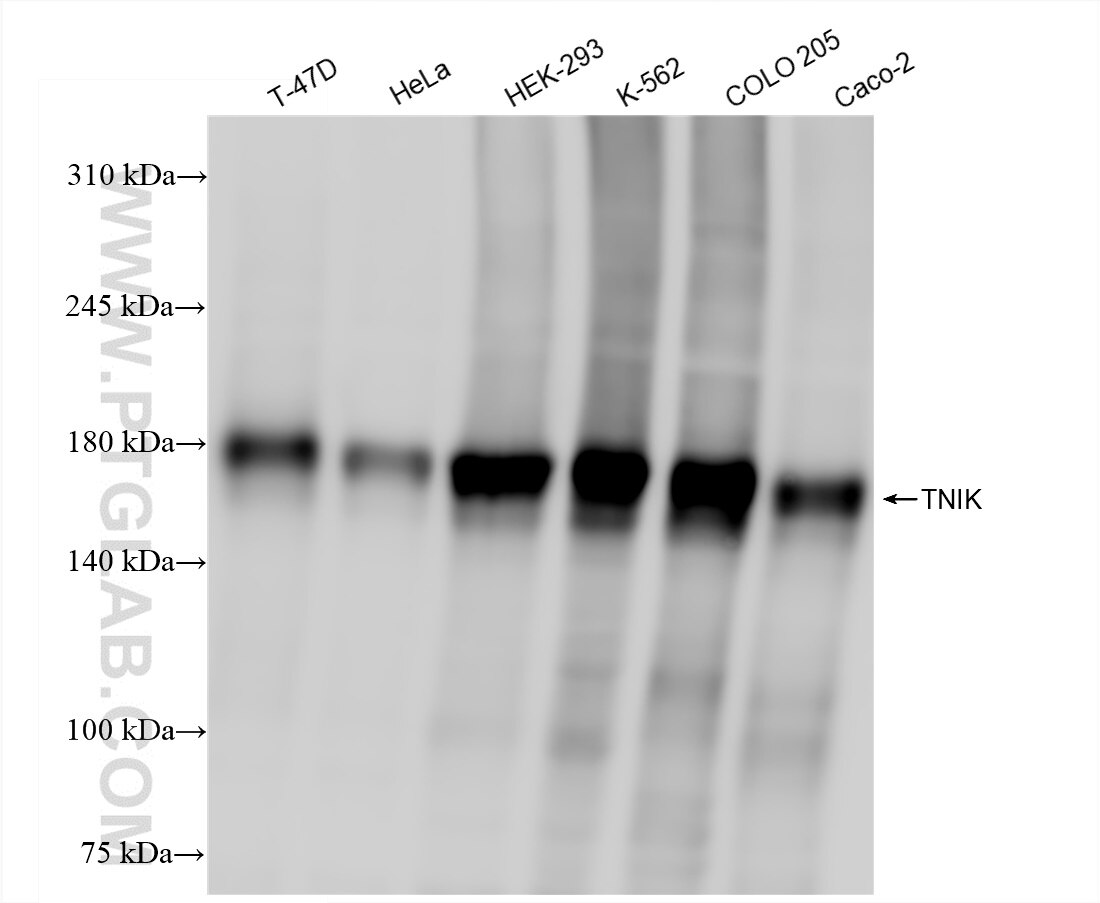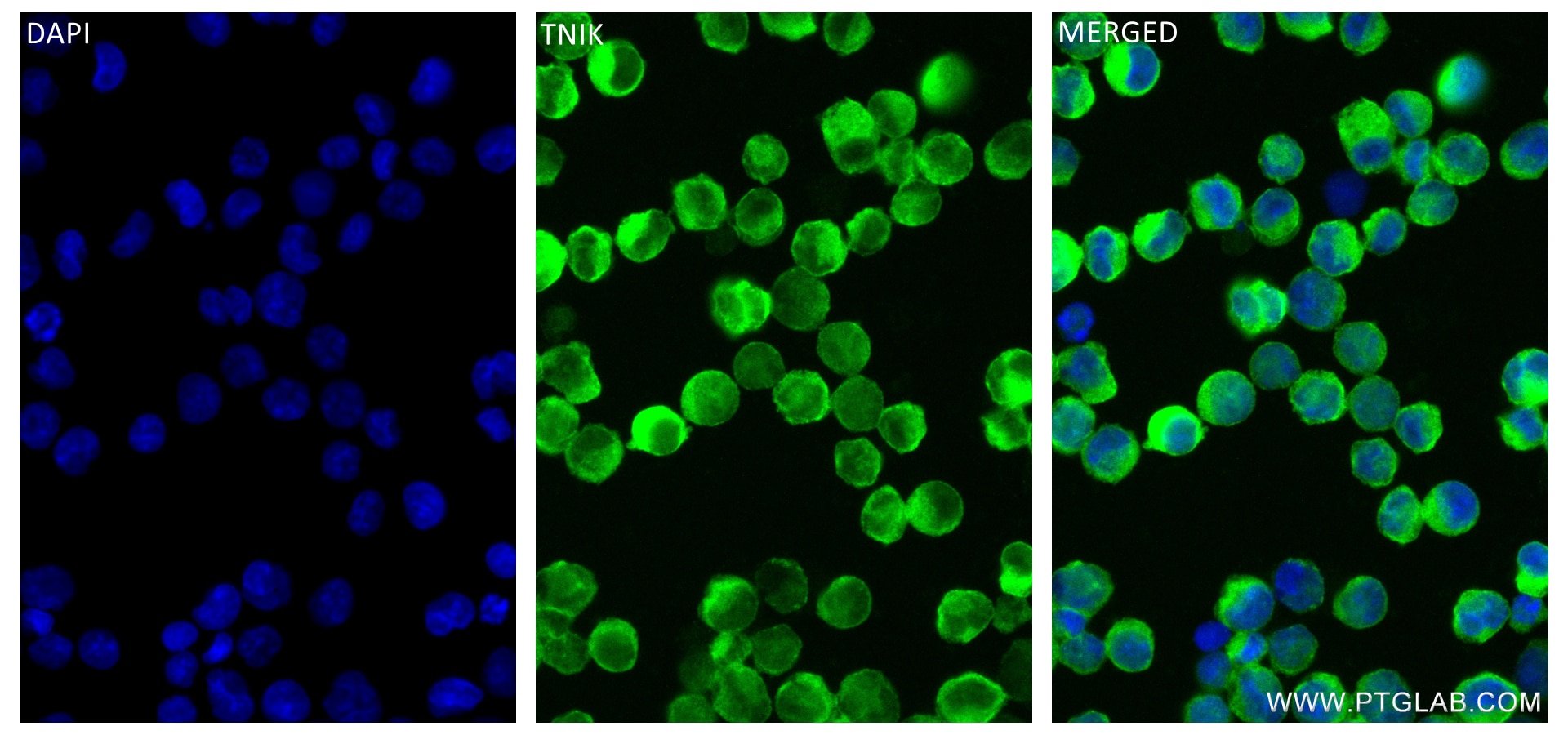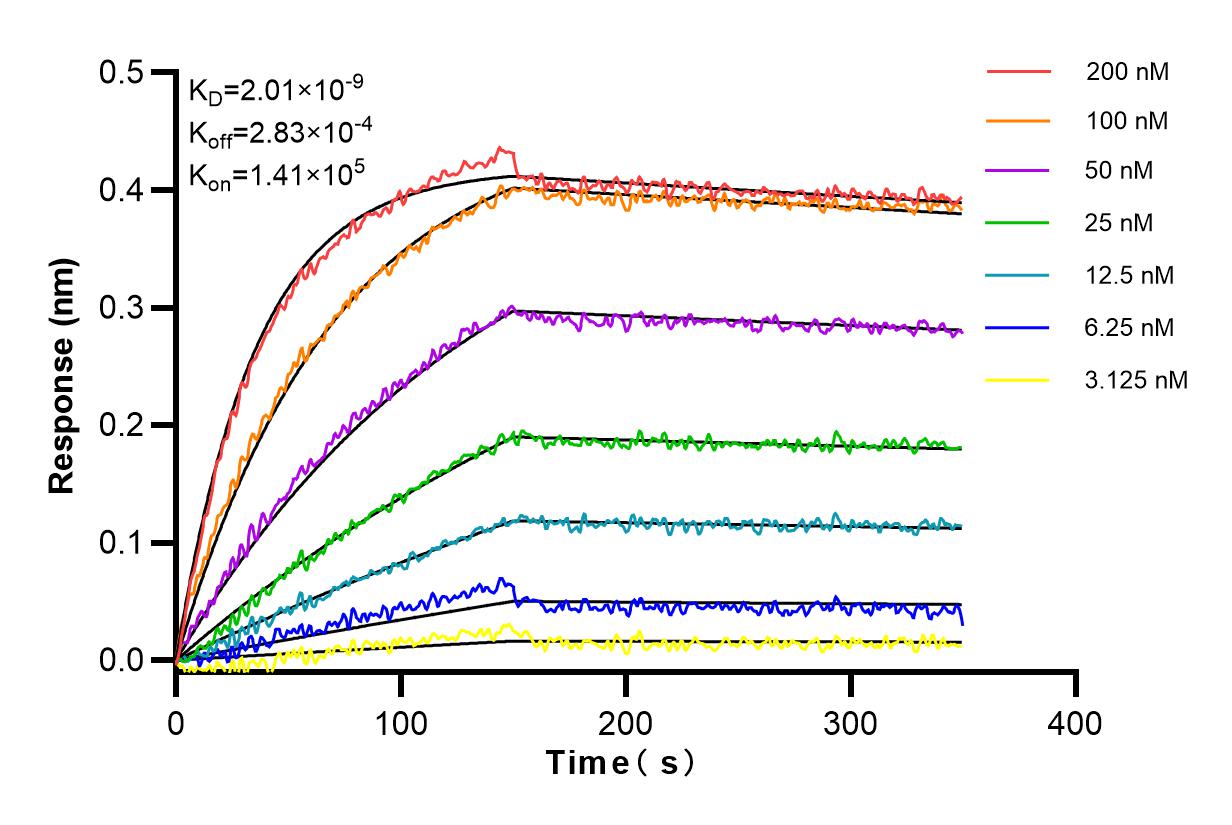Tested Applications
| Positive WB detected in | T-47D cells, HeLa cells, HEK-293 cells, K-562 cells, COLO 205 cells, Caco-2 cells |
| Positive IF/ICC detected in | K-562 cells |
Recommended dilution
| Application | Dilution |
|---|---|
| Western Blot (WB) | WB : 1:500-1:2000 |
| Immunofluorescence (IF)/ICC | IF/ICC : 1:125-1:500 |
| It is recommended that this reagent should be titrated in each testing system to obtain optimal results. | |
| Sample-dependent, Check data in validation data gallery. | |
Product Information
84231-4-RR targets TNIK in WB, IF/ICC, ELISA applications and shows reactivity with human samples.
| Tested Reactivity | human |
| Host / Isotype | Rabbit / IgG |
| Class | Recombinant |
| Type | Antibody |
| Immunogen | TNIK fusion protein Ag34132 Predict reactive species |
| Full Name | TRAF2 and NCK interacting kinase |
| Observed Molecular Weight | 170 kDa |
| GenBank Accession Number | BC150256 |
| Gene Symbol | TNIK |
| Gene ID (NCBI) | 23043 |
| RRID | AB_3671785 |
| Conjugate | Unconjugated |
| Form | Liquid |
| Purification Method | Protein A purfication |
| UNIPROT ID | Q9UKE5 |
| Storage Buffer | PBS with 0.02% sodium azide and 50% glycerol , pH 7.3 |
| Storage Conditions | Store at -20°C. Stable for one year after shipment. Aliquoting is unnecessary for -20oC storage. 20ul sizes contain 0.1% BSA. |
Background Information
Traf2- and Nck-interacting kinase (TNIK) is one of the germinal center kinase family members involved in cytoskeleton organization and neuronal dendrite extension (PMID: 24566388). TNIK is an essential regulatory component of the T-cell factor-4 and β-catenin transcriptional complex and is required for the tumor-initiating function of colorectal cancer stem cells (PMID: 10521462).
Protocols
| Product Specific Protocols | |
|---|---|
| WB protocol for TNIK antibody 84231-4-RR | Download protocol |
| IF protocol for TNIK antibody 84231-4-RR | Download protocol |
| Standard Protocols | |
|---|---|
| Click here to view our Standard Protocols |







